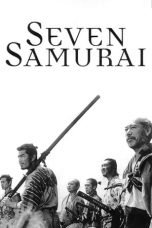- Source: Quiver (band)
Quiver were a British rock band formed in 1970 by Tim Renwick and Cal Batchelor. In December 1972, they teamed up with the Sutherland Brothers and became known as Sutherland Brothers & Quiver, releasing soft rock music and achieving success with the songs "(I Don't Want to Love You But) You Got Me Anyway" and "Arms of Mary", a No. 5 UK hit.
History
Quiver was originally formed by guitarist Tim Renwick and bassist John 'Honk' Lodge (both formerly with Junior's Eyes and David Bowie), but soon comprised Tim Renwick, guitarist and singer Cal Batchelor, bassist Bruce Thomas and drummer Willie Wilson. Most of the members of Quiver are also featured on Al Stewart's albums Orange (1972) and Past, Present and Future (1973). In 1973, The Sutherland Brothers joined forces with them. It was with the brother duo that the band had most of their fame, including the songs "(I Don't Want to Love You But) You Got Me Anyway" and "Arms of Mary", the latter being a No. 5 UK hit in 1976. Batchelor left the band in 1973, after releasing a few songs with the Sutherland Brothers.
The Sutherland Brothers and Quiver's proper full-length debut was 1973's Dream Kid. Bruce Thomas, who had repeatedly been clashing with Iain Sutherland, then was asked to leave the group during a tour of Europe in March 1974. With only a week to go before the band was due to record their next album, Terry "Tex" Comer (of the band Ace) filled in on bass for live gigs and a few album cuts, but Gavin Sutherland quickly moved over from guitar to bass, and the band continued as a five-piece. Upon learning that Comer had been working with SB&Q behind his back, Ace frontman Paul Carrack wrote "How Long" in 1975. How Long became their biggest selling hit, reaching No. 3 on both the US and Canadian charts, and No. 20 on the UK Singles Chart. After their 1974 album Beat of the Street supplied no chart singles, Wood then left the group, and the remaining members left Island Records for CBS.
Quiver disbanded in 1978. Following this, the Sutherland Brothers continued for another year as the original duo they were, before also disbanding in 1979.
Post-Quiver
Quiver's Tim Renwick went on to play lead guitar with Al Stewart, and a later incarnation of Pink Floyd.
Bassist Bruce Thomas likewise recorded with Al Stewart in 1972 to 73, and subsequently joined Elvis Costello and the Attractions.
Peter Wood (aka Peter Woods) contributed keyboards to Al Stewart's albums from 1972 to 78, later worked with Cyndi Lauper, and also worked with Pink Floyd during their 1980 and 1981 shows for The Wall. Born Peter John Wood, 9 April 1950 in Middlesex, England, he died in December 1993 in New York City.
Drummer Willie Wilson (born 8 July 1947, Cambridge, Cambridgeshire) recorded with Al Stewart in 1972 to 73, and also worked with Pink Floyd during the period (1980–81) when the band were touring with The Wall, and played drums on David Gilmour's first solo album.
Discography
= Albums
=As Quiver
Quiver (1971), Warner Bros.
Gone in the Morning (1972), Warner Bros.
As Sutherland Brothers & Quiver
= Compilation albums
=Sailing (1976), Island
The Best of the Sutherland Brothers & Quiver (1976), Island
The Very Best of the Sutherland Brothers & Quiver (2002), Columbia
The Albums (8 CD box set) (2019), Lemon Recordings
= Singles
=As Quiver
"Green Tree" (1972), Warner Bros.
As Sutherland Brothers & Quiver
References
External links
Quiver discography at Discogs
Kata Kunci Pencarian:
- Daftar kata serapan dari bahasa Jawa dalam bahasa Indonesia
- Daftar pangram
- IFC Films
- Quiver (band)
- The Sutherland Brothers
- Quiver (disambiguation)
- Arms of Mary
- Slipstream (Sutherland Brothers and Quiver album)
- (I Don't Want to Love You But) You Got Me Anyway
- Reach for the Sky (Sutherland Brothers and Quiver album)
- Tim Renwick
- Jokers Wild (band)
- Willie Wilson (drummer)
Medea (1970)
No More Posts Available.
No more pages to load.







